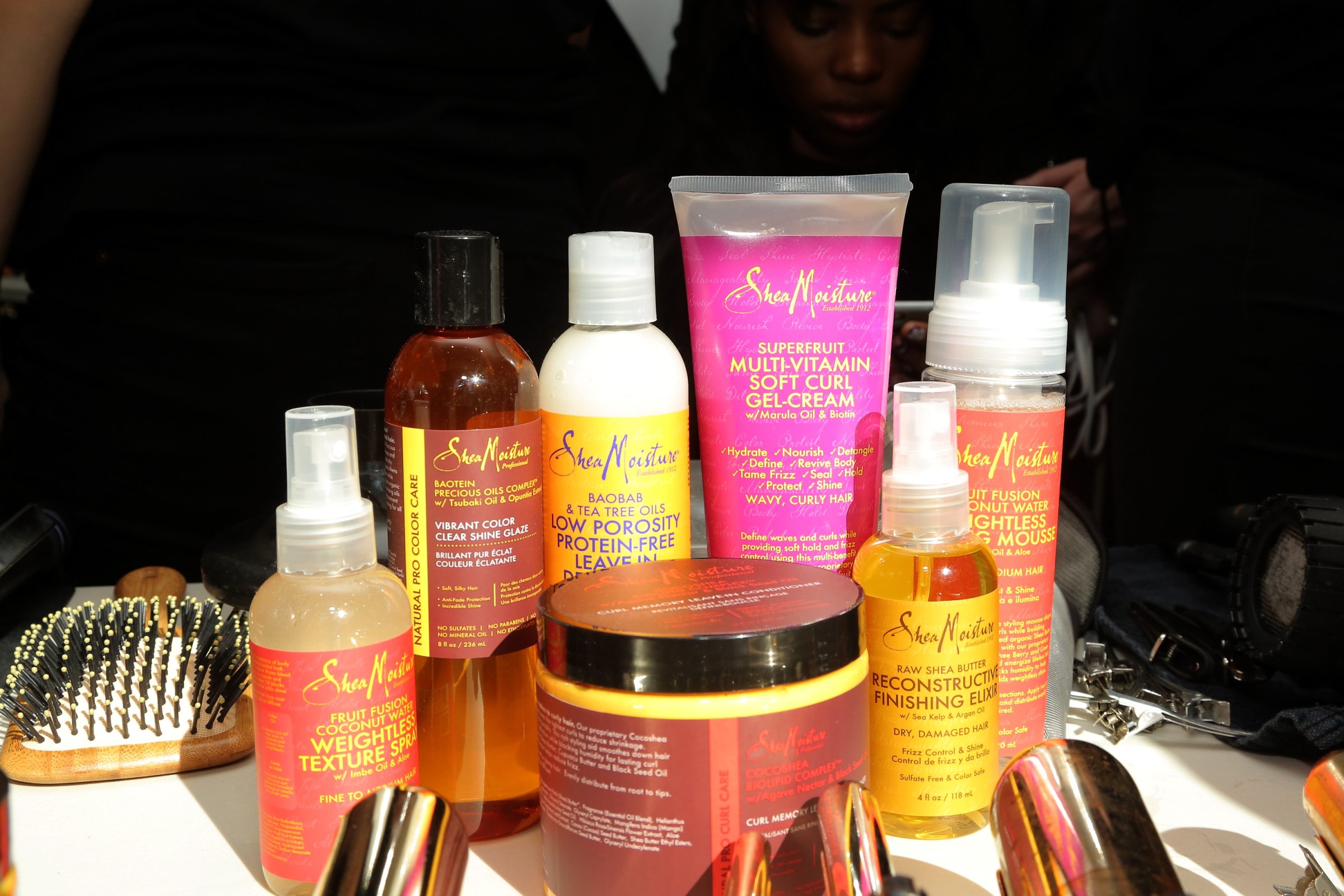
Pepsi and United Airlines have company in the dog house.
Shea Moisture, a hair and skin care company founded in Harlem in 1991 for black women’s needs, is facing backlash after releasing its newest ad depicting three women — a black woman, and two white women, one blonde and one redhead — talking about embracing their “natural” hair.
In the 60-second ad, the black woman talks about being bullied as a child for her natural, voluminous curls, while the other women discuss hating their sometimes limp locks and unusual hair color. “Break free from hair hate,” touts the ad.
Many of Shea’s loyal customers, however, are unhappy with the brand’s comparison of embracing red hair to embracing natural black texture. Several studies conducted in the U.S. have found that black women who wear their natural texture, or who wear their hair in a traditional African-American styles like dreads, braids or cornrows, are seen as less competent than their peers who chemically straighten their hair or opt for weaves. The consequences for African-American women who choose to embrace their natural texture have, historically, been more severe than white women who choose to “embrace” their red hair.
That’s not to say that white women don’t suffer from self-confidence issues stemming from their locks, but the juxtaposition of the two issues as equal — especially coming from a company that was founded by and for black women — is causing outrage on Twitter.
Several customers have criticized the company for “gentrifying” the issue of natural hair in an attempt to woo new, white users. “I get Shea Moisture wanting to get that crossover coin, BUT a black woman going natural isn’t the same as embracing your hair,” wrote one woman on Twitter. Others posted photos of Rachel Dolezal, the infamous white woman who posed as African-American and became the president of the Spokane, Wash. chapter of the NAACP.
Shortly after the ad was ransacked on the Internet, Shea Moisture issued an apology. “Wow — we really f—ed this one up!” reads the statement posted to Twitter. “Please know that our intent was not, and would never be, to disrespect our community.” A more extensive apology was posted to Instagram, in which the brand states, “We are keenly aware of the journey that WOC face – and our work will continue to serve as the inspiration for work like the Perception Institute’s Good Hair Study/Implicit Association Test that suggests that a majority of people, regardless of race and gender, hold some bias towards women of color based on their textured or natural hair. So, you’re right. We are different – and we should know better.”
Other customers, however, came to Shea Moisture’s defense.
Almost one year ago, Shea Moisture was enjoying praise for its #BreaktheWalls ad campaign, which questioned the placement of beauty products for African-American women on an “ethnic” aisle in drug stores, while products for white women were aggregated in the “beauty” aisle.
Thanks to companies like Shea Moisture as well as celebrities like Halle Berry, Amandla Stenberg and Yara Shahidi, who have been rocking their natural texture on red carpets, natural hair styles have been on the rise. Sales of relaxers have declined 26% since 2008, and earlier this year, Pantene announced a hair care series specifically for black hair.
Time will tell how long it will take for the company to bounce back from the offending ad. So far, it appears that PR blunders are the most consistent trend of 2017.
This article originally appeared on HollywoodReporter.com
More Must-Reads from TIME
- Why Trump’s Message Worked on Latino Men
- What Trump’s Win Could Mean for Housing
- The 100 Must-Read Books of 2024
- Sleep Doctors Share the 1 Tip That’s Changed Their Lives
- Column: Let’s Bring Back Romance
- What It’s Like to Have Long COVID As a Kid
- FX’s Say Nothing Is the Must-Watch Political Thriller of 2024
- Merle Bombardieri Is Helping People Make the Baby Decision
Contact us at letters@time.com